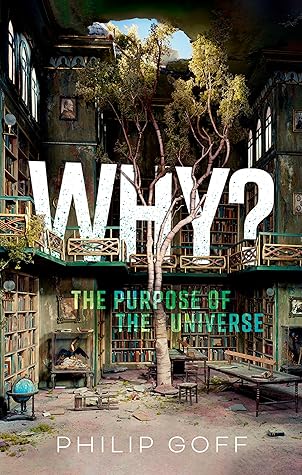More on this book
Community
Kindle Notes & Highlights
For the meaning subjectivist, what gives my life meaning is determined by what I feel to be meaningful, or by what I value.
Value nihilism is the view that every human activity is as pointless as counting blades of grass. We have a sense that certain things are worth doing: reducing suffering, advancing knowledge, creativity. But, if nihilism is true, our sense that these things are worth doing is an illusion. Everything is pointless.
However, Camus does not sanction despair but rather a heroic defiance, a brave determination to live optimistically in spite of the meaninglessness of the universe. This sounds admirable, even praiseworthy. Until one remembers that nothing is ‘admirable’ or ‘praiseworthy’ in a nihilistic universe. Camus is doing what so many half-hearted nihilists do: smuggling in value by the backdoor, in contradiction to their official worldview.
When scientists did this, what they found amounted to one of the most startling discoveries of modern science. The vast majority of the other universes generated through varying the values of the constants were incompatible with the existence of life. Not just carbon-based life of the form we are familiar with, but any kind of structural complexity whatsoever.
The odds of getting ‘6’ seventy times is 1 in 1055; on a conservative estimate, the odds of getting a universe fine-tuned for life are 1 in 10136.15
In our own time, we are so used to the idea that science has done away with cosmic purpose that we are incapable of dispassionately considering the overwhelming evidence that has emerged in support of the Value-Selection Hypothesis. It may take time for the culture to catch up with the evidence.
The first thing to say about the multiverse explanation is that even if it provides an explanation of the fine-tuning, this is compatible with cosmic purpose also providing an explanation. If it turns out that there are two possible explanations of fine-tuning, then a proponent of one of these solutions is obliged to say why they opt for that solution over the other.
‘inverse gambler’s fallacy.’
What we ultimately want from a theory of consciousness is an explanation of why brain activity goes along with experiences. Because consciousness is not publicly observable, this is not a question we can answer with an experiment.
But this just returns us to our question: what is it about our world that ensures that the evolution of functional understanding has gone hand in hand with the evolution of experiential understanding, given that these two notions of understanding are very different?
Either there is something that it’s like to be a snail or there’s nothing it’s like to be a snail. The very concept of subjective experience rules out borderline cases of consciousness.
I can do something because I think it’s worth doing, regardless of whether or not I feel like doing it. For this reason, it seems to me more natural for a pan-agentialist to hold that recognition of value brings with it libertarian free will, the capacity to choose whether to respond to one’s inclinations or to one’s judgements about what is worth doing.
Free will consists in my capacity to choose whether to follow my desire or my judgement.
The mystery of psycho-physical harmony is something only a handful of philosophers are talking about at the present moment, but I believe it’s going to change the world.
‘skeptical theism.’
If this view is right, it follows that when you’re doing physics, you’re actually studying the behaviour of very simple conscious entities. This sounds odd. It doesn’t feel like this is what you’re doing.
‘cosmopsychism,’
The Truth-Demon Thought Experiment: The Truth Demon asks for your answer to a certain theoretical question and will send you to hell for eternity if you give the wrong answer.
If art and meditation gently chisel away at our conditioned way of experiencing reality, psychedelics hack off huge chunks in one go.
However, whereas the ineffable aspect of a red experience just concerns the experience itself, a mystical experience has what the great 19th-century psychologist and philosopher William James called a ‘noetic feel,’ meaning that it seems to the person undergoing it to be a way of knowing about reality outside of the experience.
Through meditation and simple living, through engagement with nature and with things of beauty, through persistent effort to break one’s conditioned way of experiencing reality, each of us can become a little more deeply acquainted with the ‘More,’ and in doing so make reality a little bit better.


